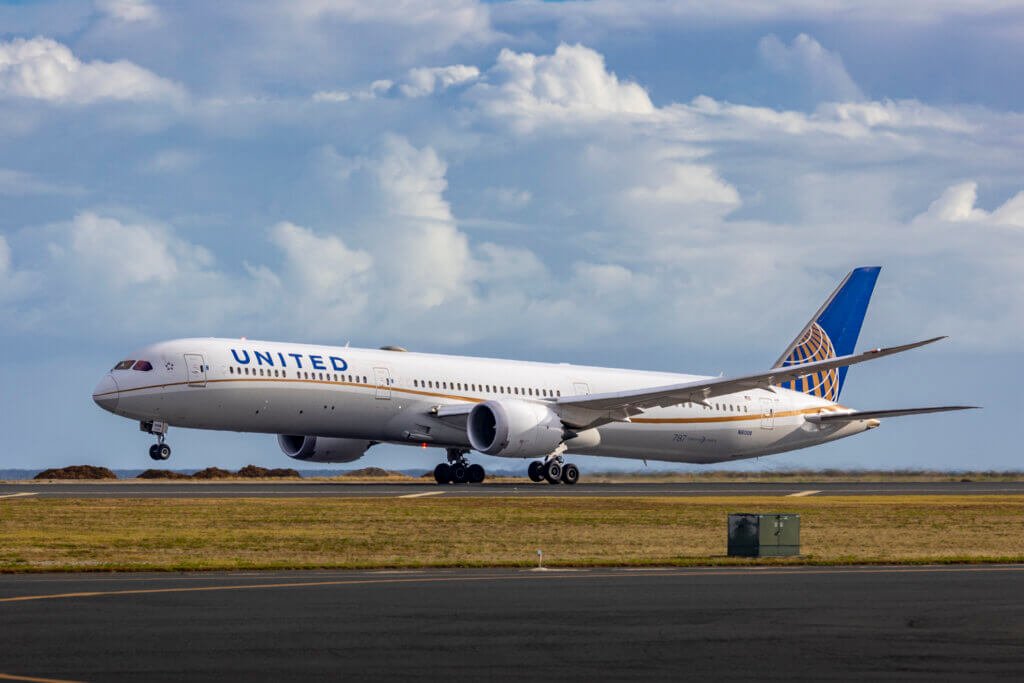Like their peers at Alaska Airlines and American Airlines, United flight attendants voted to strike this past week. However, as is the case with the other airline strike votes, this doesn’t mean a strike is imminent. That said, those with plans to travel with United (or Alaska and American) in the near future should keep tabs on negotiations.
There are a lot of contentious labor contract negotiations going on in the world of travel right now, especially here in Hawai’i. We know that Alaska Airlines flight attendants recently rejected an offer that union negotiators approved. American flight attendants are in a similar fight. Then, there are the hotel works, thousands of which at eight properties in Hawai’i, not only voted to authorize a strike, but are also threatening to walk out soon. Luckily, even though United flight attendants voted to strike, they can’t walk off the job any time soon. But it is a situation worth watching.
United Flight Attendants Voted to Strike
Travel has come roaring back since most pandemic-era travel restrictions expired. This has helped to push some airlines, like United, to record profits. Employees of these airlines, rightfully, want their fair share to the winnings. Because of this, along with astronomical increases in the cost of living, those who serve us in the air have been demanding more from their employers, leading to extended, contentious negotiations. But, as we’ve seen at Alaska and American, unions members seem to think they’ve reached a deadlock, which is why United flight attendants voted to strike.
This vote was an overwhelming display of displeasure from United’s FAs. 90% of United’s AFA members participated in the strike vote with an overwhelming 99.99% voting in favor of a walk out. While pay is naturally a sticking point, so are work rules. Over at Alaska, the union won flight attendants there Boarding Pay, which is something they’ve long sought. But, at United, the union is taking things a step further and are pushing for Ground Time Pay.
What is Ground Time Pay? Basically, it’s what it sounds like. Under this system, flight attendants would receive half of their flying pay for any time they’re not, you know, flying. This covers things like check-in, boarding, and even just waiting at the airport. To me, that would be a more equitable setup, but I could also see why airlines wouldn’t want to do that. Such a scheme would significantly increase their costs, which would, of course, trickle down to consumers. But I digress.
As is the case with all other airline contract negotiations, employees can’t begin striking until their negotiations are released from federal mediation AND they pass a 30-day cooling down period. Until then, you have nothing to worry about. But after? All bets are off.
Final Thoughts
Again, while United flight attendants voted to strike, one isn’t imminent. Negotiations can continue to occur, though we’ve seen some at other carriers fall apart already. As this back and forth keeps going, just keep an eye on news about entering a 30-day cooling down period. If that happens, I’d suggest making alternate travel arrangements if you can QUICKLY. This is when points & miles can become a savior, but just be sure that you don’t book basic economy fares (regardless of how you pay).
As you may all recall, when I had concerns as to whether or not my critical Alaska Air flight would operate or not, I booked back up flights with Southwest that would get me to my destination at roughly the same time. I used Rapid Rewards points to do so, and simply canceled the flights when it became apparent that I didn’t need them.

